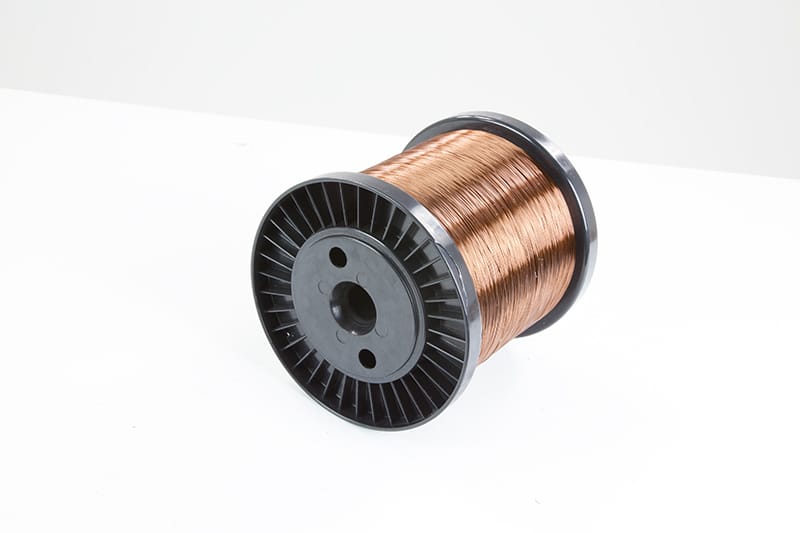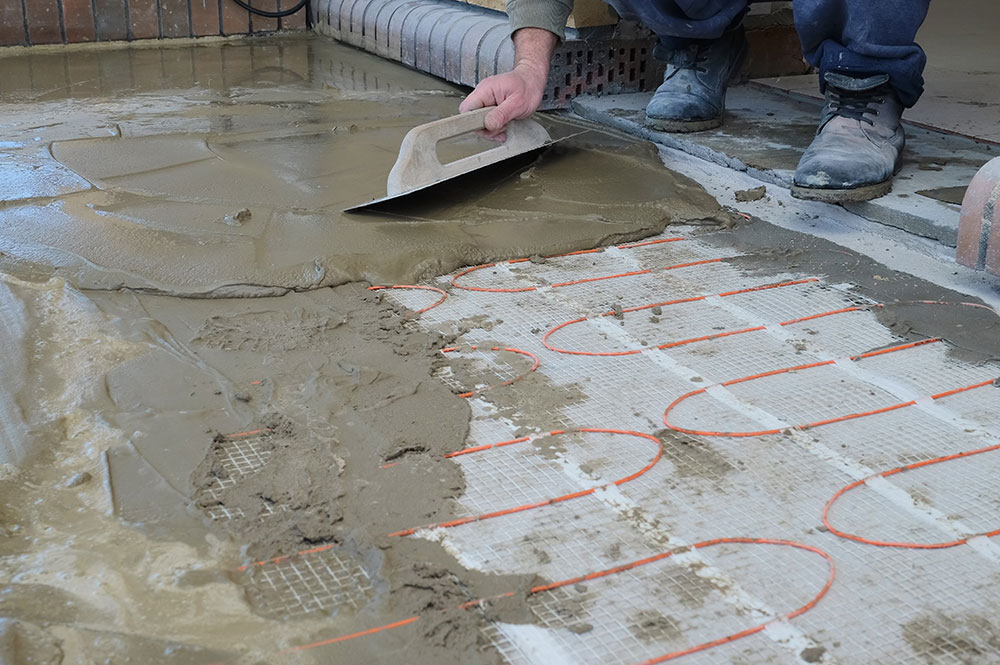Electric underfloor heating is becoming more and more popular in homes and businesses across the country today. The relative ease and lower cost of fitting an electric underfloor heating system as opposed to a wet, waterpipe based system makes it an attractive option, especially in renovations.
The continued trend in décor and furnishings, emphasising space and clean lines, lend themselves towards the hidden nature of underfloor heating. Walls remain free of obstructive radiators and the potential for the direct use of renewable electricity from solar panels on the roof means it can even be the green option.
Underfloor heating also creates a comfortable heating effect at lower air temperatures as the whole room ‘feels’ warmer if the heat comes from the floor and naturally convects upwards.
3 Best Resistance Wire Types for Electric Underfloor Heating Conductors: Copper, Copper-Nickel & Nickel-Chromium

Resistance Wires Types
Underfloor heating cables need to be kept as small as possible, less than 5mm in diameter is typical, to avoid having to raise the level of the floor significantly. This means the heating cables are constructed as ‘Series Resistance’ heaters. This is the simplest form of electric heating cable, with the heater element wire in the middle being either a single conductor or a small bunch of finer wires, but with a fixed resistance per metre. This resistance cable will only work at one length when used with the mains voltage available. If you want a different length of cable you have to use an underfloor heating wire with a different resistance. You can also make the cable as a flat twin – still keeping its profile as flat as possible but allowing the electrical circuit to be made in the one cable by jointing the two conductors together at the ‘far’ end.
The resistance of the heating conductor is determined by two things, its cross-sectional area and the conductivity of the metal. As you are trying to keep the cables a similar size; small enough to be buried in screed below your floor, but large enough to deliver the power required to heat the room, you need to use a range of metals with differing conductivities for your heating element wire materials to make the range of cables you will need for different sizes of room. In the resistance wire world, you tend to use the inverse of conductivity, resistivity, when considering the wire for the heater element. The higher the resistivity, the higher the resistance of the heating wire.
For long runs of cable, the resistance per metre has to be lower than for short runs (due to Ohm’s Law). For this you need to use the lowest resistivity material – which is Copper. Resistance Copper conductors are manufactured to the same tight tolerances as resistance alloy wires and allow heating cable runs of up to 180 metres.
As your cables become shorter you need to use alloys with higher resistances (again due to Ohm’s law). After Resistance Copper the next group of alloys is the Copper-Nickels. These range from 1% Nickel through to 44% Nickel, Constantan, increasing in resistance as the Nickel percentage increases. These alloys are particularly stable when heated and were created specifically for low temperature heating applications.
Getting shorter still you will eventually need to go to the Nickel-Chromium alloys wire. These have resistivities up to 70 times greater than Copper and are used in heating cables that are only a few metres long. Nickel-Chromium alloys were created for high temperature heating elements in furnaces, but their high resistivity is required to make the shortest underfloor heating cable runs.
Underfloor Heating Cables
Once you have determined your range of cables you can then decide whether you want to provide them as loose wire underfloor heating cables or pre-fixed to a mat for your underfloor heating system. Loose cables give you more flexibility in laying the cables to precisely fit the shape of your room whereas heating cable mats can be rolled out across the floor more easily in rectangular rooms.
Scott Precision Wire has the knowledge and experience to help you select the right conductors for your electric underfloor heating cable system so please contact our team, and we will be happy to assist.
